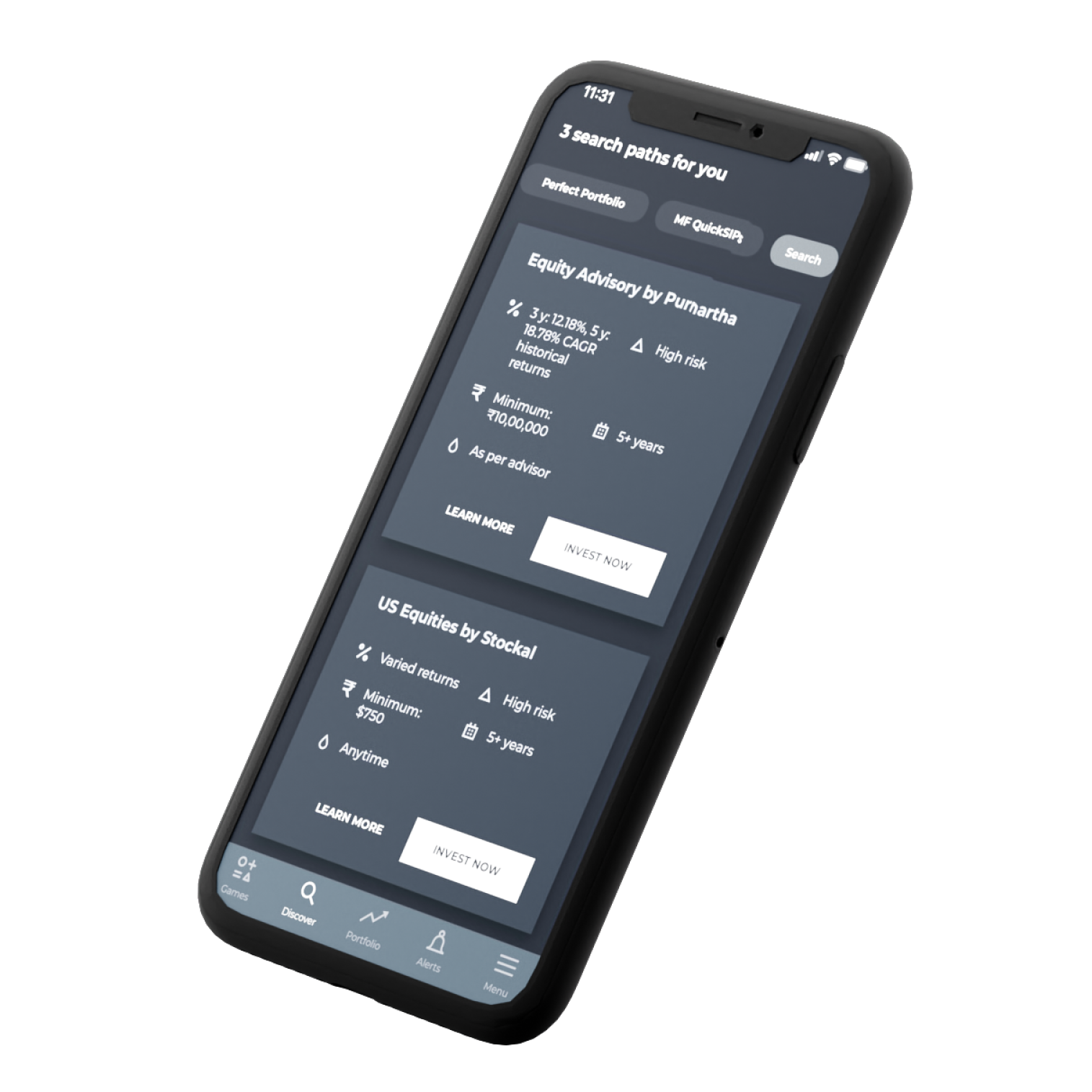
.jpg)
Are you a first-time investor seeking a safe and dependable method to build your wealth? Debt funds could be a great alternative to explore. Understanding the fundamentals of debt funds is critical whether you're new to investing or simply searching for a more conservative investment strategy. In this blog, we will demystify debt funds and equip you with the knowledge you need to successfully enter the world of debt fund investments.
Debt funds are a form of mutual fund that mainly invests in fixed-income investments including treasury bills, corporate bonds, debentures and other money market instruments. Due to the rate of return they offer and the fact that they are often less impacted by market volatility, these funds are seen to be less dangerous than equity funds.
Debt funds provide investors with several benefits, such as predictable returns from holdings in fixed-income securities, diversification, high liquidity for ease of buying and selling, expert management by experienced fund managers, options for various risk levels and durations, potential tax benefits through indexation, and transparency through regular reporting. Despite the fact that debt funds are typically seen as less risky than equity funds, investors should first analyse their risk tolerance and investment objectives.
For new investors seeking secure and reliable returns on their investments, debt funds are a great choice. These funds invest largely in fixed-income assets that generate consistent interest income. Unlike equities funds, debt funds provide a lower risk and are less prone to market changes. For conservative investors or those who have a limited investing horizon, this makes them an appealing option.
Debt fund investments have a lot of advantages for new investors who want to increase their money in a safe and reliable way. The following are some crucial benefits of debt money for beginners:
Compared to equity investments, debt funds are typically considered lower risk.. The likelihood of severe market volatility is decreased because they invest mostly in fixed-income assets with predictable returns.
By investing in different types of fixed-income assets, debt funds provide diversification.
Lower volatility in debt funds offers benefits such as capital preservation, steady income generation, reduced stress, risk mitigation, and portfolio diversification. It provides investors greater confidence in maintaining their capital, a predictable income stream, a calmer investment experience, and a lower level of risk. Additionally, it serves as a valuable diversification tool within an investment portfolio.
Debt funds provide a lot of advantages, but before making an investment, beginners should carefully consider the fund's credit rating, fee ratio, and investment approach, among other things. Selecting the best debt funds based on your financial objectives and risk tolerance may be made easier by simply downloading the Cube Wealth App or you can directly get in touch with our Cube Wealth Coach.
Getting started with debt fund investments using the Cube application is relatively straightforward. Here's a step-by-step guide to help you begin:
Visit the relevant app store for your device (Google Play Store for Android or the App Store for iOS) and search for the "Cube Wealth" application. Download and install the app on your smartphone. Open the Cube app and sign up if you are a new user. Provide the necessary details such as your name, email address, and mobile number. If you already have an account, log in using your registered credentials.
Upon signing in, you may need to complete your profile. This usually involves providing additional information about your financial goals, risk appetite, and investment preferences. This step helps Cube recommend suitable debt fund options for you. To comply with regulatory requirements, Cube may require you to verify your identity. This typically involves submitting scanned copies or photographs of your government-issued identification documents, such as your Aadhaar card, PAN card, or passport.
Based on your profile and investment preferences, Cube will suggest various debt fund options that align with your goals. Review the recommendations provided by Cube and explore the details of each fund, including historical performance, expense ratios, and risk factors. Once you have assessed the recommendations and conducted your research, choose the debt fund(s) you wish to invest in. Cube provides a diverse range of debt funds from reputed fund houses, offering various investment styles and risk profiles.
To invest in debt funds through the Cube app, you'll need to link your bank account. Follow the instructions provided within the app to securely connect your bank account using secure protocols. Once you have finalized your investment allocations, Cube will provide you with instructions to transfer the funds from your linked bank account. Follow the provided steps to complete the payment securely.
It is important to keep in mind that investing in debt funds entails market risk, and previous performance is not a guarantee of future results. If you have any specific concerns or questions, it is critical that you understand the risks and talk with a Cube Wealth Coach.
Beginners should undertake extensive research on funds, determine their risk tolerance, and avoid just pursuing high yields to prevent typical mistakes while investing in debt funds. They should think about expense ratios, diversify their assets, actively monitor their portfolio, prevent hasty market reactions, be patient with long-term investments, and seek expert guidance when necessary. Beginners may make more informed judgments and boost their chances of success in debt fund investing by avoiding these mistakes.
By avoiding these typical blunders, novices may make better judgements and increase their chances of attaining their financial objectives through debt fund investments. It is critical to educate oneself on a regular basis, remain current on market developments, and seek expert counsel when necessary.
Ans. Yes, debt funds are appropriate for novices with minimal investment experience. Debt funds are often seen to be less complicated and hazardous than equity investments. They give a variety of possibilities, such as liquid funds and short-term funds, which provide convenience and decrease volatility. Furthermore, professional fund managers administer debt funds on behalf of clients, making investment decisions. Beginners should, however, undertake research, analyse their risk tolerance, and seek expert assistance to ensure they pick the correct debt funds that match their investing goals and risk tolerance.
Ans. It is typically advised to start off cautiously as a beginner and commit a percentage of your investment portfolio to debt funds. It is suggested to devote 20–30% of your investment portfolio to debt funds. However, depending on your specific circumstances, financial objectives, and risk tolerance, this allocation may change. It's preferable to always seek the assistance from Cube Wealth coach as they can provide you personalised guidance based on your specific needs.
Ans. Depending on a person's objectives and the state of the market, a debt fund's appropriate investment period might change. Debt funds give investors a variety of investment time horizons to choose from, including short-term funds (usually lasting less than a year) and long-term funds (lasting up to several years). Long-term funds may be the best option for investors seeking capital appreciation over a longer time horizon, whilst short-term funds may be excellent for individuals with a shorter investment horizon or those seeking liquidity. To maximise your results, it's crucial to match the investment length with your financial objectives, risk tolerance, and market outlook, and to evaluate and modify it as necessary. Getting personalised advice from a financial adviser will help you choose the best length for investing in debt funds depending on your unique needs.
Ans. Take into account elements like your investing goals, risk tolerance, and time horizon when selecting the best debt fund for your financial objectives. Analyse the fund's past performance, duration, and credit quality. Match the features of the fund to your objectives: for capital preservation, choose funds with reduced volatility; for regular income, select funds with an emphasis on earning interest income. Analyse the track record of the fund house and the fund manager as well. To properly control risk, it is advised that you diversify your assets among several debt fund types. The debt fund that best fits your unique financial objectives may be chosen with the help of careful study and expert assistance.
Ans. Yes, investors have the freedom to change between several debt funds if necessary. Investors can modify their investing strategy in response to shifting market conditions, risk choices, or financial objectives by switching between debt funds. It's crucial to take into account any exit loads or transaction costs connected with changing funds. Before switching, thoroughly assess the performance, risk profile, and investing goals of the new debt fund. To make sure the move fits with your investing goals and risk tolerance, it is essential to consult Cube Wealth Coach on the Cube Wealth App.
Debt funds may be a good entry point into the world of mutual funds for new investors. Beginners may make educated judgments when choosing the correct debt fund by using a step-by-step strategy that begins with identifying financial objectives and analysing risk tolerance. It is critical to note that, while debt funds provide relative stability and possible income, they also entail considerable risk. Regular portfolio reviews, as well as obtaining expert guidance as needed, can help you navigate the investing path and ensure that your debt fund investments match with your financial goals. You can also consult Cube Wealth Coach for better guidance before investing in debt funds.
Other Blogs You May Like:






on stock picking, poring over excel sheets, financial news, analyzing market trends, tracking the Sensex, researching company fundamentals, comparing mutual funds, reading financial reports, trying to predict the future & losing your sanity!